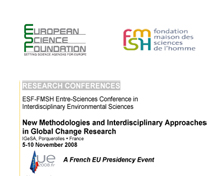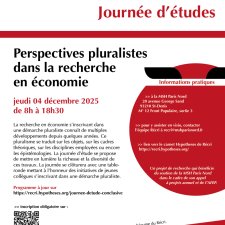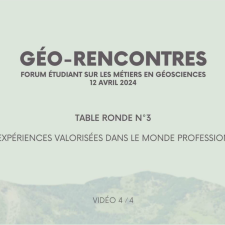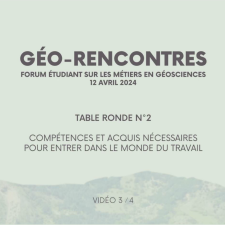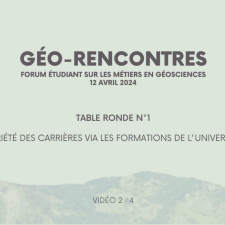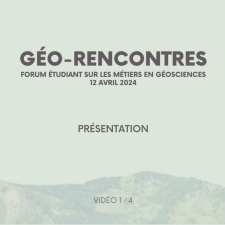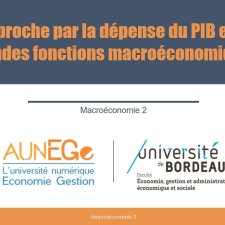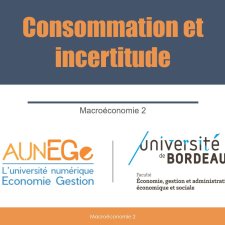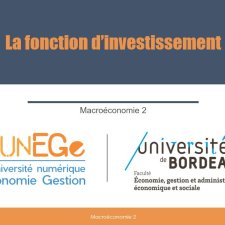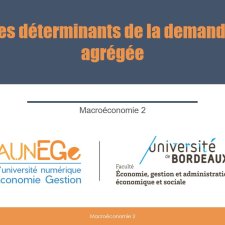Chapitres
Notice
International Negociations on Climate Change: How to Take Advantage of Risk Aversion to Improve the Conditions for the Emergence of a Consensus
- document 1 document 2 document 3
- niveau 1 niveau 2 niveau 3
Descriptif
Climate change is one of the best examples of global environmental problems. Countries are conscious that they have to find a solution to this global problem at the international level. Negotiations on climate change started more than 15 years ago with the signature of the United Nations Framework Convention on Climate Change. Since then, the process went through a series of conferences and protocols. Part of this process, the Kyoto protocol constitutes a major step since it designed country-specific targets defined in terms of CO2 emissions abatement. The fact is that we should not speak about an international environmental agreement but about a negotiation process to find a solution to an environmental problem. The negotiation starts with general and consensual principles but should evolve towards legally binding and more and more precise commitments from the parties. We can consider the whole process as a series of nested treaties. In this process, the uncertainty is not only in the scientific description of the climate change. It is also a consequence of the strategic negotiation of the different countries. 35 The way the negotiation is organized conditions the result and the likelihood to reach an agreement. The institution available and the design of incentive mechanism play an important role. Our claim is that it is possible to take advantage of the parties’ risk aversion. This is a way to make them conscious of the benefit they can draw from an agreement. We describe a mechanism to implement this idea.
Intervention / Responsable scientifique
Dans la même collection
-
Comparison of Simulated Tree-Ring Cellulose d180 at the European Scale
DanisPierre-AlainIn order to investigate factors involved in the inter-annual variability of d180 in tree ring cellulose (d18OTRC), we simulated the d18OTRC from 1960 to 2001 over Europe. We used 1) simulated climate
-
Borehole Climatology and Model Simulations: Steps to Integrated Assessment
Gonzales RoucoJesus FelipeProgress in understanding climate variability through the last millennium leans on simulation and reconstruction efforts. Exercises blending both approaches present a great potential for answering
-
Food demand, Productivity Growth and the Spatial Distribution of Land and Water use: A Global Model…
PoppAlexanderNowadays, human society appropriates about one quarter of total net primary production of the terrestrial biosphere. Production of food, energy and materials, and the related use of land and water
-
Turning Hazards into Ressources? Climate Change, Floods and Coastal Wetlands in the Costa Brava (No…
Serra-LlobetAnnaAccording to the IPCC Fourth Assessment, one of the most vulnerable areas in Europe are coastal zones. This is due to sea level rise combined with increased risks from storms. Coastal wetlands, in
-
Debate
HourcadeJean-CharlesSomervilleRichardSvedinUnoDuvalRomainThe European Science Foundation (ESF) and the French Foundation of the Maison des Sciences de l’Homme (FMSH) (within the Entre-Sciences programme) have agreed to jointly develop a new conference
-
Debate
DjédjéOkoubi Franck DidierMillnerAntonyRaj AryalKomalFragnièreAugustinThe European Science Foundation (ESF) and the French Foundation of the Maison des Sciences de l’Homme (FMSH) (within the Entre-Sciences programme) have agreed to jointly develop a new conference
-
Climate Models: learning from the Past Long-Term Climate Variability
JoussaumeSylvieProjections of future climate change rely on global climate models. Such models simulate the dynamics and physics of the coupled atmosphere-ocean system and move towards models of the full Earth
-
Data-Model Fusion Approach in Global Change Research: Recent Development and Future Challenges
PengChanghuiIt is increasingly recognized that global change research requires methods and strategies for combing process models and data in systematic ways. This is leading to research towards the application of
-
The Largest Lakes and reservoirs of Russia as a Priority Water Ressource for Society
LemeshkoNataliaGlobal change for the last 25 years drives to important changes in hydrometeorological regime in different regions, reflecting water resources change of the larges reservoirs and lakes of Russia and
-
Present-Day Geomorphological Changes in Polar Regions
ZwolińskiZbigniewThe landscape uniqueness of polar zone manifests itself in morphological traces of older glaciations and marine transgressions, areas of present-day glaciations, multi-year permafrost, multi-year snow
-
Debate
CallonecGaëlDupuisJohannThoronSylvieThe European Science Foundation (ESF) and the French Foundation of the Maison des Sciences de l’Homme (FMSH) (within the Entre-Sciences programme) have agreed to jointly develop a new conference
-
IPCC Working Group I and III
JoussaumeSylvieThe European Science Foundation (ESF) and the French Foundation of the Maison des Sciences de l’Homme (FMSH) (within the Entre-Sciences programme) have agreed to jointly develop a new conference
Avec les mêmes intervenants et intervenantes
-
Debate
CallonecGaëlDupuisJohannThoronSylvieThe European Science Foundation (ESF) and the French Foundation of the Maison des Sciences de l’Homme (FMSH) (within the Entre-Sciences programme) have agreed to jointly develop a new conference
Sur le même thème
-
Journée d’étude | Récri : Perspectives pluralistes dans la recherche en économie - PARTIE 2
TailleurGabrielMalherbeLéoCastelanelliBenjaminRosano-GrangeMarlèneRosElodieGononMorganeTosoliniMarionBétouleAliceGrangerayJonasBouffangeAlbertAu cours de ces bientôt deux ans de séminaire, les séances mensuelles du Récri ont été l’occasion de mettre en évidence la diversité et la richesse des recherches en économie menées par des jeunes
-
Journée d’étude | Récri : Perspectives pluralistes dans la recherche en économie - PARTIE 1
MofakhamiMaloMéryFlorianAu cours de ces bientôt deux ans de séminaire, les séances mensuelles du Récri ont été l’occasion de mettre en évidence la diversité et la richesse des recherches en économie menées par des jeunes
-
Géo-Rencontres 2024 / Les expériences valorisées dans le monde professionnel
LilloEmmaAraujoJulieHuartFlorianDubreuRomainBuquetDamienChazalLauraBorieMarianeForum sur les métiers en géosciences organisé par les étudiants du CMI Ingénierie Géologique et Civile, Université de Bordeaux, 12 avril 2024
-
Géo-Rencontres 2024 / Compétences et acquis nécessaires pour entrer dans le monde du travail
BrinonJulietteAmoleFili-FenuaPretouFrédéricCampetHugoLiébauxAlbinDe AlemeidaMarie-LouPoirierAymericDufrenoyAudreyForum sur les métiers en géosciences organisé par les étudiants du CMI Ingénierie Géologique et Civile, Université de Bordeaux, 12 avril 2024
-
Géo-Rencontres 2024 / Variété des carrières via les formations de l'université
InguimbertDianeLacazeRomaneLemaitreLaurieChazalLauraMontjeanPascalPoudevigneJacquesPortefaixFrédéricForum sur les métiers en géosciences organisé par les étudiants du CMI Ingénierie Géologique et Civile, Université de Bordeaux, 12 avril 2024
-
Géo-Rencontres 2024 / Présentation
LatasteJean-FrançoisLavieThéoForum sur les métiers en géosciences organisé par les étudiants du CMI Ingénierie Géologique et Civile, Université de Bordeaux, 12 avril 2024
-
Tokyo, plus grande « ville » au monde : aménager et gouverner la démesure
Languillon-AusselRaphaëlAvec ses quelques trente-cinq millions d’habitants, Tokyo est la « ville » la plus peuplée au monde, et l’une des métropoles les plus riches. Cette présentation vise à décrire, analyser et expliquer,
-
L'approche par la dépense du PIB et les grandes fonctions macroéconomiques
Maveyraud-TricoireSamuelL'approche par la dépense du PIB et les grandes fonctions macroéconomiques
-
-
-
-
Les déterminants de la demande agrégée
Maveyraud-TricoireSamuelLes déterminants de la demande agrégée


